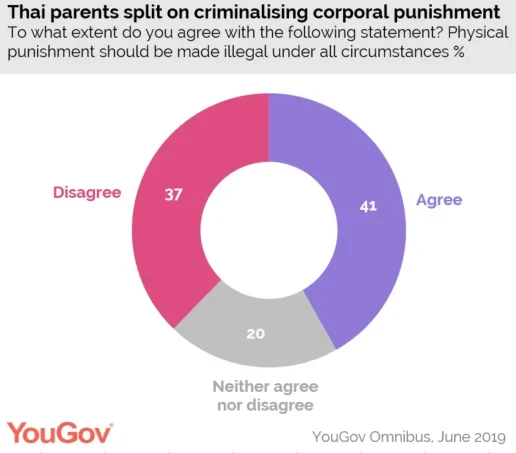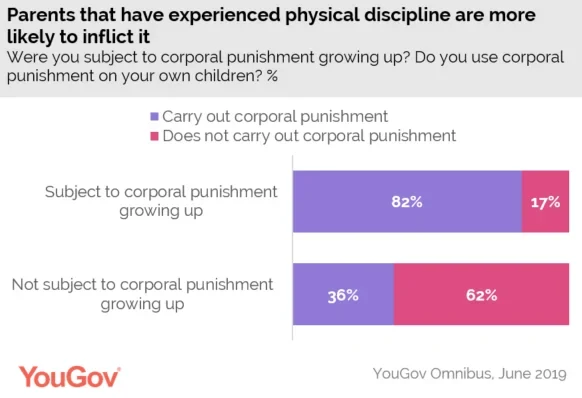
Indonesian parents split on criminalising corporal punishment
Seven in ten use corporal punishment on their own children
While physically disciplining children remains legal in Indonesia, Indonesian parents are divided on whether this should be, latest YouGov research finds.
A third (32%) of parents think physical punishment should be made illegal, and the same amount (32%) think that it shouldn’t. The remaining third (33%) are undecided. Those who don’t use corporal punishment at home are more in favour of criminalising it than those who do. (44% vs. 28%).

Although not all parents agree on whether corporal punishment should be illegal, the majority (73%) carry out physical discipline at home. One in seven (14%) do this often, while three in ten (30%) does this sometimes, and the remaining three in ten (29%) does so rarely. A quarter (25%) never physically punish their children. Lower SES groups are more likely to physically punish their children than Upper SES groups (82% vs. 70%).
Eight in ten (82%) Indonesian parents were subject to corporal punishment growing up. Data shows that those who grew up being physically punished are far more likely to conduct the same punishment on their own children, compared to those who did not (82% vs. 36%).

Almost half (46%) of Indonesian parents think that physical punishment amounts to child abuse. Surprisingly, those who were subject to corporal punishment as children as less likely to think of it as child abuse, as compared with those who were not (43% vs. 66%).
Overall, over half (55%) of parents think that physical punishment is sometimes necessary. However, a similar number (52%) believe that it could worsen behavioural problems.
Jake Gammon, Head of Omnibus APAC at YouGov Omnibus commented: “Parenting styles vary, and the question of whether a child should be subject to corporal punishment is one that tends to spark debate. While it appears most Indonesian parents are comfortable with physically disciplining their children at home, they are split in thinking whether the law should come into play.”
***Results based on 1,231 Indonesian parents surveyed by YouGov Omnibu

































